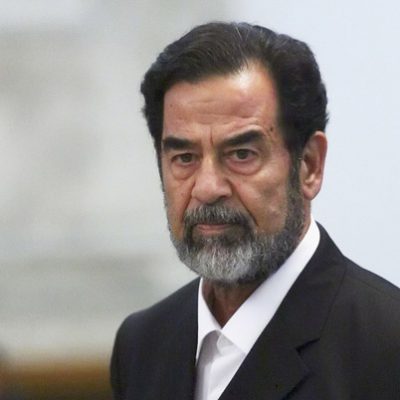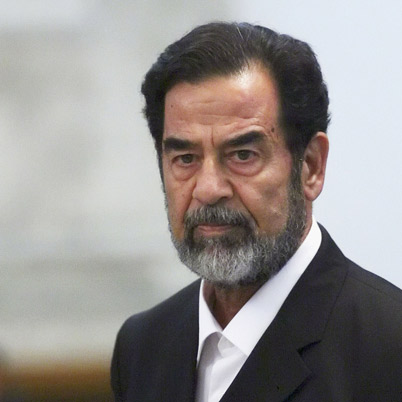
I have a quick question to ask our readers in the wake of recent elections in both the USA and Israel. What is Barack Obama’s middle name?
My guess is that you, like much of our electorate, know that his middle name is “Hussein.” My guess is that you know this not because you were terrifically curious to know about this and looked it up yourself. Instead, I’m guessing you know that Barack Obama’s middle name is Hussein because it made national headlines during his first election run and continues to be a legitimate topic of conversation today. Right-wingers lambasted the man for the extremist Islamism he must believe in as a result of this name, and others lambasted the right-wingers for Islamophobia and, well, being wrong.
This is often the way that American Presidential elections work. Our system leads to two main candidates vying against one another for a number of months with no other competition, and as a result, every last personal detail about their lives comes under scrutiny. When debates roll around, we occasionally talk through their actual political beliefs. Most of the time, though, we hear more about negative campaign ads, polling data, the candidates’ upbringing and young adulthood, and their hobbies than we do about political issues.
Israeli elections went down a little bit differently. In the weeks leading up to the election, my Facebook began exploding with various links about the election. Very few of them centered on any one individual and his or her personal history. In fact, I found myself looking at a whole slew of interesting articles and images. One diagram pragmatically and comedically broke down a number of big-ticket Israeli political issues (settlements, the Golan Heights, Shabbat laws, etc.) and based upon your answers you were directed towards political parties that would represent your opinions. I learned from this “election compass” that while I have been operating under the assumption that Meretz would be my political party of choice if I had a vote in Israel, my values tend more towards the Labor and Hatnu’a platforms than they do to Meretz.
In American elections, this process wouldn’t really happen in the same way. Our system, I would argue, makes that process far more difficult. In general elections, there are only two options, and most individuals vote for people with whom they may differ on a number of issues. In primary elections, this problem (I do argue that it is a problem) is slightly less of an issue, but candidates still face pressure to conform their issues to a very narrow spectrum in order to be simultaneously selectable by their party and electable in the general election.
The style of government present in Israel is more appealing to me. It has its warts, to be sure. Individual characteristics can be important, and with a lower emphasis on character, the likelihood of an individual with shady morals gaining a great deal of power is raised to some degree. That said, a system like Israel’s can exist without worrying as much about the problems that the United States has had to tackle regularly.
For example, we hear about the problem of money in our political system. In the wake of the supreme court’s Citizens United decisions, unbelievable amounts of money are thrown into specific elections, often to bash specific opponents. In Israel, that money would be harder to spend. Who would you choose to target? In a two-party system, the answer is easy. You target the opposition, and you bring up the fact that your opponent’s middle name sounds scary. In a multiple-party system, though, choosing one target gives you less bang for your buck. The reason for this is that in a two-party system, the opponent’s loss is your gain. In the absence of a strong independent candidate, or an even rarer third-party heavyweight, 500 votes taken away from a Republican will mean close to 500 votes given to a Democrat, or perhaps 400 votes for a Democrat with 100 people choosing not to vote.
In Israel, though, negative campaign ads do little to help any specific person. 500 votes taken from Likud could end up spaced out in a variety of random other parties. Some might go to Shas, some might end up with Yesh Atid, and others will go in a whole number of other directions. Thus, bashing an opponent cannot really uplift your own party so much, and doing so is unattractive when compared to the U.S.
The other piece of the puzzle in Israeli elections is that there are simply too many candidates to over-analyze very many of them. We knew intimate details about Mitt Romney’s life in high school, we were told about Barack Obama’s battle to quit smoking cigarettes, and we learned all the names of their family members.
I’m not idealistic enough to think that the American electoral system is going to change much any time soon. That said, I think we sometimes have a great deal of chutzpah, assuming that our ideas are the best in the world without any reason to think so. We can learn from other countries occasionally, and perhaps borrowing some ideas from Israel’s electoral process would affect us positively.
If not, I’ll be happy to inform you that Chris Christie’s middle name is James, and Andrew Cuomo’s is Mark. Perhaps in a few years I’ll have the privilege of learning their zodiac signs, favorite movies, and first crushes.

